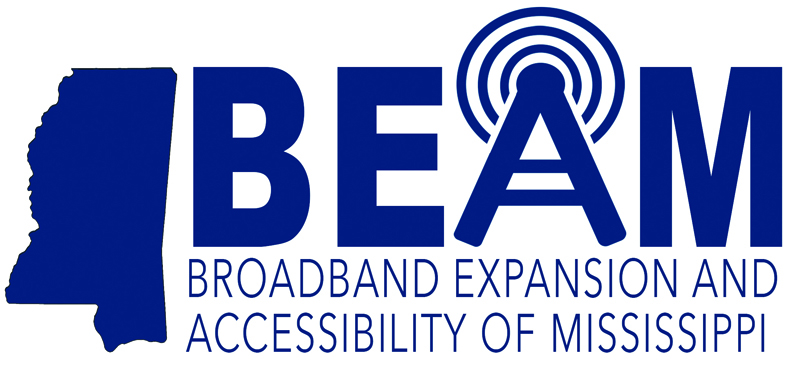Access to High Speed Internet Vital to Rural Communities
By Becky Gillette
High-speed Internet services including broadband are vital today for personal use, education, healthcare and business. Yet some rural areas in the Delta have little in the way of reliable high-speed internet access. But the State of Mississippi is making plans to administer an expected $500 million to $1 billion in federal funds to make broadband deserts in the state bloom.

“People are so frustrated,” says Sally Doty, director of the Broadband Expansion and Accessibility of Mississippi (BEAM) office established by the legislature in 2022 that will administer grant funding for projects to enhance internet connectivity in the state. “There are significant areas in the Delta that are vastly unserved. There are people with no access at all and those with some form of access through satellite or other older technology that is frustrating to use. It is unusable for some things we need it for now like Zoom calls, remote work and telemedicine.”
Doty says better service is not going to happen overnight; it is going to take some time. Nationally $43 billion has been made available for improving internet connectivity under the Infrastructure Investment and Jobs Act. The BEAM office won’t know until June 30 how much money has been allocated to Mississippi.
“But better service is coming, and my office has a real sense of urgency,” says Doty. “We will do everything in our power to move grants quickly. The pandemic made it clear that high-speed internet access is a real necessity now.”
BEAM has been working with the Federal Communications Commission to make sure that its mapping of service in Mississippi is accurate. Mississippi residents can help by visiting the website www.broadbandms.com. If you have internet service, you can take a test at that site to determine the speed of the service. Then it takes a couple of minutes to answer a few questions including how many people are using the internet at your residence or business, and what you use the internet for, including school and remote work. Those who do not have service may call or text “Internet” to (601) 439-2535 to log their address as unserved.
“This firsthand information helps us communicate with the federal government, and show a true picture of service in Mississippi,” says Doty.
While the money coming into the state for broadband seems like a lot, Doty says fiber is expensive, and electronics are very expensive.
“It is going to take every bit of that money,” says Doty. “Once we have that allocation in June, it is our responsibility to submit a five-year plan to the National Telecommunications and Information Administration that details how the funding will be used to provide service to everyone in Mississippi. After that Mississippi will submit an initial proposal to the feds that will trigger the release of twenty percent of the overall funding. A competitive application process will be used to grant the money to internet service providers to build in these locations that do not have service or have poor service. In the past, it just hasn’t made financial sense for providers to go into those areas with low population density.”
BEAM is currently administering a $32-million grant awarded February of 2022 that includes a $5-million dollar project in Coahoma County and a $1-million dollar project in Mayersville in Issaquena County. The providers are proceeding with environmental reviews, engineering and certifications from the state historical preservation office. Construction should begin in the next month.
Although her office does not administer it, another significant grant from the USDA is designed to provide better internet services for Coahoma County farmers and others. Increasingly, precision agriculture that relies on satellite imagery is used to boost yields and reduce input costs for crops.
“We talk a lot about getting service to the ‘last mile’,” says Doty. “However, service to the ‘last acre’ will be vitally important in the Delta.”
Another large grant BEAM will administer is the Broadband Equity Access Deployment program. Doty says that program prefers fiber as a technology but there may be some instances where other technologies may be more feasible in low-density, low-population areas.
The federal grant programs require that the service provided be affordable, but that is not defined and can vary in different regions of the country with service less expensive in more heavily populated areas. Doty said BEAM anticipates a low-cost option of fifty or less per month, and advises people whose income is less than 200 percent of the poverty level to consider applying for a thrity a month subsidy through the Affordable Connectivity Program (ACP). Go to fcc.gov/acp for more information and apply through your internet service provider. The subsidy will be paid to the provider.
While high-speed Internet access can be through a cell phone, Doty says many uses such as virtual education or telehealth require more than a cell phone. Thus, the ACP provides a one-time $100 grant to buy a tablet or computer.
Once broadband infrastructure is built out, it is important for as many people as possible to take service and support the system.
“This is a lot of capital money to build it, but then it will take support to maintain and operate it,” says Doty. “We expect even more demand for high-speed internet in the next few years from applications developed with artificial intelligence and virtual reality. We don’t know nor can we even imagine what we will have. Did we think ten years ago we could send videos on a phone? The advances are incredible, and I look for more in the next few years.”
Some rural electric cooperatives in the state are providing high-speed internet services using the same poles that provide electricity.
“Delta Electric is doing a fabulous job, and they are going to build out throughout their territory,” says Doty, who has visited the Delta more than ten times so far to promote the BEAM program. “I expect them to apply for some of the grant funding our office will administer so that will help them as well.”
Gov. Tate Reeves says that high-speed broadband access is paving the way for improved educational outcomes for students, strong economic development opportunities for communities, better access to medical care for residents, and so much more.
“BEAM will lead the expansion of connectivity to unserved and underserved areas throughout our state in a centralized and coordinated fashion,” says Reeves. “It will also play a key role in managing grant programs related to the broadband infrastructure investments that have been made in our state.”
For more information on the MWBDC, go to www.deltastate.edu/wmbdc.

